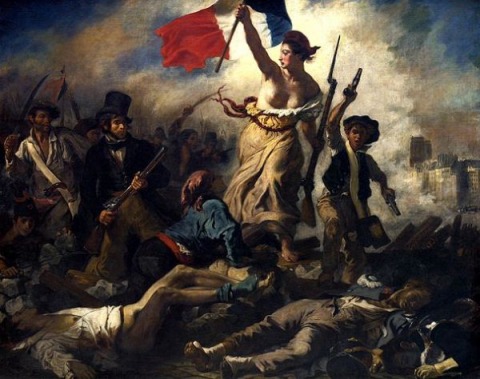
A recent newsletter of the American Maritain Association reminds us of the split personality of France, a country long noted for devotion to both Bastille Day and the feast day of Joan of Arc. The mid-century Thomist, Jacques Maritain, hoped that his country’s Christian aspirations might be harmonized with its avowed dedication to liberty. That was a tall order, because French faith had too often been united with the cause of reaction, and the notion of liberty with the cause of violent, anti-Christian revolution.
Good point. Let us add that our country long enjoyed an advantage France did not have, because our founders were harmonizers from the beginning. Faith and reason, ancients and moderns, were all drawn into the struggle for self-government. Christian republicans and moderate admirers of the Enlightenment made common cause. For a while it seemed to work.
But there was no real synthesis, only a colloidal suspension. Eventually the elements settled out, like milk and cream. Although from its first centuries the Church has united faith and reason, the young republic’s most influential religious movements tended to hold intellect in suspicion. Although American proponents of natural rights were the beneficiaries of a rich and ancient tradition, they were ungrateful ones, adopting “made simple” versions of natural law theory that ultimately came to seem unbelievable. Now, having thrown away faith, those who formerly styled themselves defenders of reason can no longer bring themselves to believe in reason either. Abandoning God, they have even lost man.
So the European crisis of culture is our crisis too. “American exceptionalism” means simply that here it has taken longer to come to a head. Could there have been a real cultural synthesis? Yes -- and there still could be, for faith and reason really are allies, and our past mistakes are not an irresistible fate. But can it be achieved in the way we have previously gone about it? That road is closed.